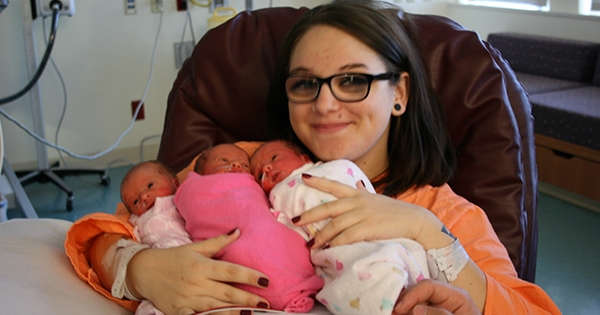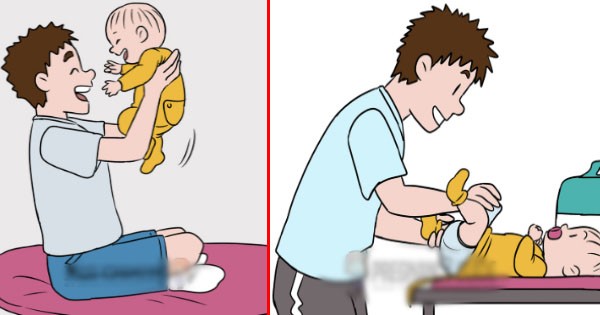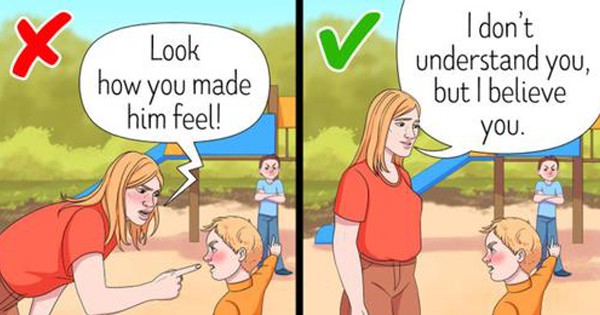
Hello Janet,
I write to you wondering how to deal with my very strong-willed and independent 5-year-old. As a toddler and emerging preschooler, she would express very large emotions. I would try to help her name and accept them by saying calmly, “You are feeling frustrated. Would you like to take a break?” If she felt angry or frustrated, she would yell at me, “I’m NOT FRUSTRATED!!!” This was often accompanied by a fit or meltdown, and I’ve always done my best to accept her intense feelings and be present with her. She continues to negate my naming of her emotions to this day.
She has a very strong desire to be right, even to the point of saying, “I’m right and you are wrong!” I’ve tried to neutrally and calmly offer her the language and skills she needs to learn about and manage her emotions, but as she is growing, her resistance to these lessons is growing as well. I know that much of this is normal behavior, and much is also her own personality. I’m just not sure how to respond to “I’m NOT ANGRY!” being screamed at me when I am trying to be a calm, confident, respectful parent.
Thank you for any insight,
Amy

Hi, Amy:
Intense, strong-willed children can certainly be a challenge. They express more feelings, more explosively, more often. This is especially true in the early years and when they experience stress. In the moment, we just want it to end, but just like children whose emotional expressions may be gentler and less dramatic, they need to have their feelings heard and accepted as is.
It sounds like you’re making valiant efforts to deliver that message to your daughter, but some subtle misconceptions in your approach are preventing her from receiving it. I would consider your goal. It might be that you just want her to stop behaving this way, which would be quite understandable! Unfortunately, it’s doubtful she’s capable of controlling her feelings at this time in her life and attempting to do so to please her parents wouldn’t be healthy for her.
So a more positive, achievable goal would be to practice genuinely, consistently and completely accepting the intense ebb and flow of her emotions. Granted, this is a supreme test of your patience and nerves, but when her raging storms are normalized for both of you, your life together will feel more manageable.
Here are my thoughts for addressing some common misconceptions about children and feelings and some adjustments I advise for more successfully handling your daughter’s intense reactions:
Acknowledging isn’t just about words
It’s about connecting with our children — through our words, yes, but also through our eye contact and an encouraging, open, validating tone that assures them that we see, hear and accept them. This does not mean labeling their feelings (I’ll talk about that in a moment).
The key to a helpful response is recognizing our motives, which children are almost always aware of on some level. Our motive in acknowledging our children’s feelings should be to connect with them and validate the feelings so that they feel encouraged to share them completely. “You seem angry about that” should be another way of saying, “I’m perfectly okay with this feeling you are sharing. In fact, I want to know and try to understand what’s going on with you. Keep telling me about that for as long as you need to.”
Most of us, however, are inclined to have a personal agenda that is the opposite of acceptance. Our children’s outbursts are uncomfortable for us, and we’d like them to end as quickly as possible. With that as our intention, we might acknowledge our child’s emotions to put a kind of button on them (an “off” button). So when we acknowledge to our upset child, “You’re angry,” the subtext they hear might be more like: “I got it! I hear you, so now you can stop being angry, okay?” When children sense the impatience and lack of full acceptance that we are actually feeling (under the guise of validation), it can be intensely frustrating and infuriating for them.
“I’m not angry!” is just another way of expressing frustration and the response strong-willed children typically have when they sense our discomfort and subtle pushback. What she’s really saying is, “STOP labeling and trying to fix my feelings and just please let me have them! Just let me feel!” So, don’t give her another reason to feel frustrated and angry. If she does make a statement like “I’m not angry!” I would respond with an accepting, “Okay!”
In all these cases, I’d focus on being as patient and accepting as possible, and my inner mantra might be Just let the feelings be; or These feelings belong to my child, not me. This doesn’t mean we should feel held captive to our child while she’s expressing herself. After genuinely acknowledging her, you can move away if there’s something you need to do. The message of our unruffled, nonjudgmental acceptance is what matters.
If we’re doing something about the feelings, we’re not accepting them
Acceptance is a patient, just-letting-it-be kind of attitude. If we sense ourselves wanting to take action – to say or do the right thing – we’re most likely not really accepting, and our children will know that. When we try to show or teach acceptance, we actually demonstrate the opposite: that we’re impatient, uncomfortable, can’t accept, and just want to get it over with.
For example, you shared: “I would try to help her name and accept them by saying calmly, “You are feeling frustrated.” Generally, I don’t advise naming emotions, because when we’re deciding what another person is experiencing, we risk being inaccurate. So I would only label feelings in a question or as a possibility: “You seem very angry about that.” Or as a way to empathize: “It can be so frustrating when that happens.” I would simply state what I know for sure: “You didn’t want me to say ‘no’ to the ice cream!”
It is true that with very young children, our suggestions that they seem angry, sad, frustrated, etc., can help them to learn to identify these feelings and develop social intelligence. But by 4 or 5 years old, it’s best to say very little. When in doubt, relax, breathe, maybe nod your head, but say nothing at all.
You also shared that you asked your frustrated daughter: “Would you like to take a break?” This is a loving attempt to resolve her feelings for her when what she needs is your patience and belief in her that it’s okay to express them completely. It’s what she needs to do at that moment, so taking a break will only postpone and perhaps intensify the next outburst.
Then you offered: “I’ve tried to neutrally and calmly offer her the language and skills she needs to learn about and manage her emotions.” Again, you’re in action here when your daughter needs more of your acceptance and trust in her process.
Children can’t vent their feelings in a reasonable, analytical manner.
Feelings are often unreasonable and can’t be expressed through words alone. So rather than naming her feelings, calmly hear and accept them at full strength. Rather than questioning or correcting her need to be “right,” accept and rise above it. Rather than offering her a break or other tools for managing her emotions, trust and fully accept her intense responses and over-reactions.
“I know that much of this is normal behavior, and much is also her own personality.” I would trust this voice. This is where you’ll find confidence — your perception of these outbursts as perfectly normal for your daughter, rather than something to fix or manage. This will help her to accept them as well. It begins with us.
Basics for understanding our strong-willed children:
- They need to vent their strong feelings regularly.
- Intense, emotional reactions to even the most minor disappointments are to be expected. What might appear to be a crisis is, for them, a healthy explosion.
- Blasts and meltdowns need to be allowed, normalized, and even welcomed, not punished, calmed, or fixed.
- It isn’t helpful to attempt to direct them to control their emotions. They do so as their brain matures and through our modeling, acceptance, understanding, and patience.
- They need us to rise tall as strong, confident, benevolent leaders, not get caught up in squabbles, ride along with them on their emotional rollercoasters, or take their blasts personally.
- Know that on the other side of this “coin” is positive power, accomplishment, leadership, much that will make us proud. We’re likely already seeing some of that and there’ll be many more surprises to come.

















































